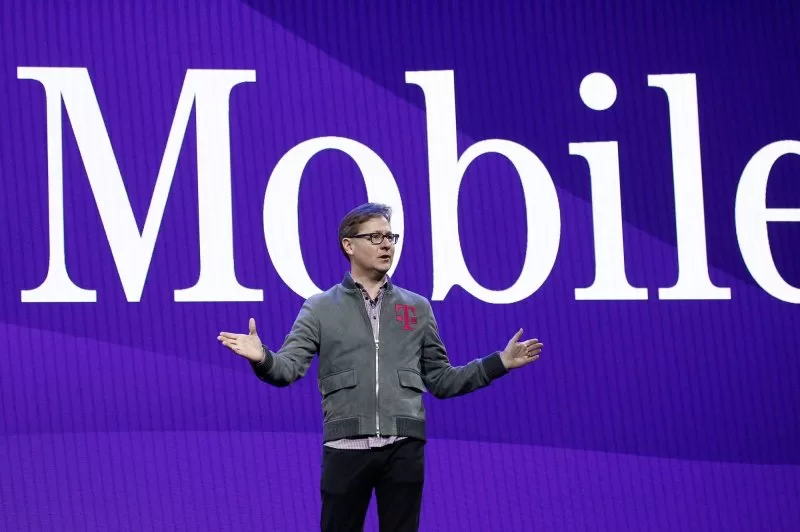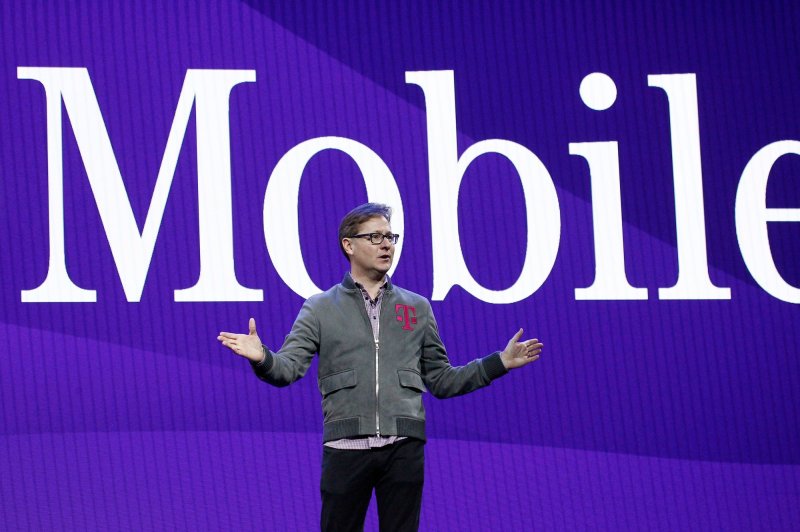1 of 2 | “As customers from both companies will get more coverage and more capacity from our combined footprint, our competitors will be forced to keep up — and even more consumers will benefit. The Un-carrier is all about shaking up wireless for the good of consumers and this deal is another way for us to continue doing even more of that,” T-Mobile CEO Mike Sievert said Tuesday. File Photo By James Atoa/UPI |
License PhotoMay 28 (UPI) — The wireless provider T-Mobile on Tuesday unveiled plans to buy the large part of competing U.S. Cellular in a $4.4 billion deal which will give T-Mobile a further 4 million customers.
“As customers from both companies will get more coverage and more capacity from our combined footprint,” T-Mobile’s CEO Mike Sievert said in a news release, “our competitors will be forced to keep up — and even more consumers will benefit.”
The transaction, expected to be finalized by mid-2025, includes a combination of cash and up to approximately $2 billion of assumed debt.
It will give T-Mobile’s hundreds of physical store locations, broader reach particularly in rural U.S. areas and will expand T-Mobile’s spectrum rights which are certain rights granted by the federal government that allow the transmittal of mobile signals, according to the company.
Under the agreement, T-Mobile, based in Bellevue, Wash., will acquire Chicago-based U.S. Cellular’s wireless operations and about 30% of its certain assets while T-Mobile will lease space on at least 2,100 additional cell towers. U.S. Cellular will keep its nearly 4,400 owned towers, its equity method investments, and approximately 70% of spectrum assets.
Customers of U.S. Cellular will have the option to stay on their current plans or move to an unlimited T-Mobile plan of their choosing with no switching costs, T-Mobile said. The second-largest wireless company in the United States with over 110 million customers by the end of 2022, T-Mobile was called “the right partner” by U.S. Cellular CEO Laurent Therivel.
“The decisions we announced today are in the best interests of our customers and our shareholders,” Therivel said in a separate news release.
“T-Mobile is the right partner for our wireless operations and will ensure that customers have access to best-in-class wireless speeds and performance, including 5G and a nationwide network, at compelling prices,” he said.
U.S. Cellular, which saw a 6% stock price jump Tuesday, currently operates in 21 states while T-Mobile stock shares also were up more than 1% on Tuesday.
T-Mobile merged with Sprint, at that point the country’s third and fourth largest wireless carriers, in 2020 in a $26 billion sale after 13 state attorneys general sought to block the deal, saying it was potentially harmful to customers
“The T-Mobile/Sprint merger will hurt consumers, drive up prices, cost jobs & hurt folks in rural & urban areas,” Minnesota’s Attorney General Keith Ellison said in 2019 on X as he joined the legal effort to stop the merger.
“It will make it harder for folks to afford their lives,” Ellison claimed.
In March of last year, T-Mobile acquired Ka’ena Corporation and its subsidiaries Mint Mobile and Ultra Mobile in a billion-dollar deal that echoed the U.S. Cellular buy. Five months later in August T-Mobile said it would be trimming almost 7% of its workforce over the following months as part of a cost-cutting strategy.
But Boost Mobile’s founder was critical of the merger Tuesday morning and called on the Federal Trade Commission to act in a social media post.
“There is NO way they should be allowed to purchase these customers they must be made to divest them to an [mobile virtual network operator],” Boost’s ex-CEO Peter Adderton said on X, adding “this is now getting out of hand.”
Adderton compared the T-Mobile sale to a theoretical Verizon or AT&T buy of Dish Wireless.
“It’s clear the regulators have given up and now believe 3 [mobile network operators] is enough in the market so [mobile virtual network operators] are all we have left,” he said in a separate post right after.

